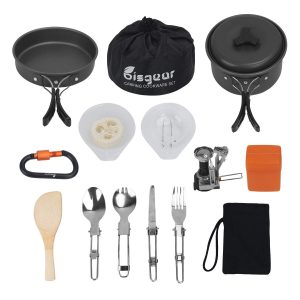
When talking about survival, there’s a lot out there that can kill you. So much so that it can seem like the world is out to get you at times, which in a way it kind of is. This is why prepping is so vital to successful survival. There are thousands of mistakes you could possibly make when prepping for survival, and many of those are covered right here on this site. Whether it’s how to store your food, where to find water, or how to prep the ultimate bug-out bag, prepping is all about, well, being prepared.
So what mistake could single-handedly be wrecking your prep if all these other possible issues exist? It’s actually far simpler than any of these pitfalls; it is simply a mindset that can be changed.
In any survival situation, most people will overestimate their abilities and underestimate the risks. These two form the over/under mistake. So what exactly does this mean? In short, it’s thinking you know more than you do while believing the problem is not as bad as it seems. These ideas together can wreck your prep and even get you killed. Let’s look at how to fix this seemingly simple problem before you fall victim to it.
Overestimate Abilities
With all the prepping you do, it’s easy to fall victim to this falsity. Reading about bugging out at a moment’s notice is great, but have you actually practiced it? Knowing the ideas behind hunting, fishing and gigging is crucial to proper survival, but do you have any actual experience?

The biggest part of prepping is doing, not reading. Sure, you have to read something first to learn the basics, but to actually say you have the skill, you have to do it countless times until it becomes second nature. You need to learn to draw your concealed carry from the holster until it becomes as easy as walking. It’s all too easy to understand the basics of a skill and claim it as one we then know.
Thinking you have abilities that you truly don’t possess can get you into quite a bit of trouble. If you go off trail while hiking because you “know” you can find your way back without a map or compass, you could easily get lost and possibly die in the process.
The same goes for overall prepping. Remember, prepping isn’t just planning; it’s doing. If you believe you have a certain skill, get out there and try it out. Go bug out for a weekend and see how it works, just have a backup plan in case it doesn’t. Go try to fish with simply a hook and fishing line. Go build a snare and see if you can catch anything. It’s better to underestimate what you know than believe you can do more than you truly can.
Underestimate Risk
Nobody likes to think about risk. We plan and prepare for the worst, but evaluating risks associated with our plans is also important. Even if you accept risk and evaluate it frequently, it’s all too easy to go light on the overall risk assessment. If you underestimate risks, you can get into a lot of trouble.
When talking about survival, not accounting for the level of risk with a given situation can hurt your chances or even end them completely. The goal here is to acknowledge the risks and threats of a given situation and plan for them accordingly.

To be more specific, a prime example of underestimating risk comes from driving long distances. In the age of highways and fuel-efficient vehicles, we often don’t think twice about driving a few hours for something as simple as visiting a friend, but in actuality there is quite a bit of risk involved. What if you broke down at night in the winter? What if you ran out of gas or oil? When you’re talking about being hours away from civilization these are all real risks. Worse yet, what if a disaster struck while you were driving, how would you get home? This risk can be planned for and prepped for by use of a Get Home Bag, or just packing a few extra supplies in the trunk or behind the seat.
Risk comes from more than just basic situations, too. Think of the risk of poor sanitation, hygiene, and first aid treatment for starters. These are real killers that are rarely taken into account. Don’t overthink your planning, but assess the risks in a real, honest manner and then act on them.
Combined, this one-two punch is easily the biggest area of improvement for just about every prepper out there today. They both come down to one key idea: Be realistic. By being realistic in your skills and the risks involved with an area, idea or action, you can truly prepare in the best way possible. In short, be honest with yourself and you’ll be in a much better place when the SHTF.

 1-Week Food Supply Kit
1-Week Food Supply Kit  Camping Cookware Kit - 16 Pcs
Camping Cookware Kit - 16 Pcs